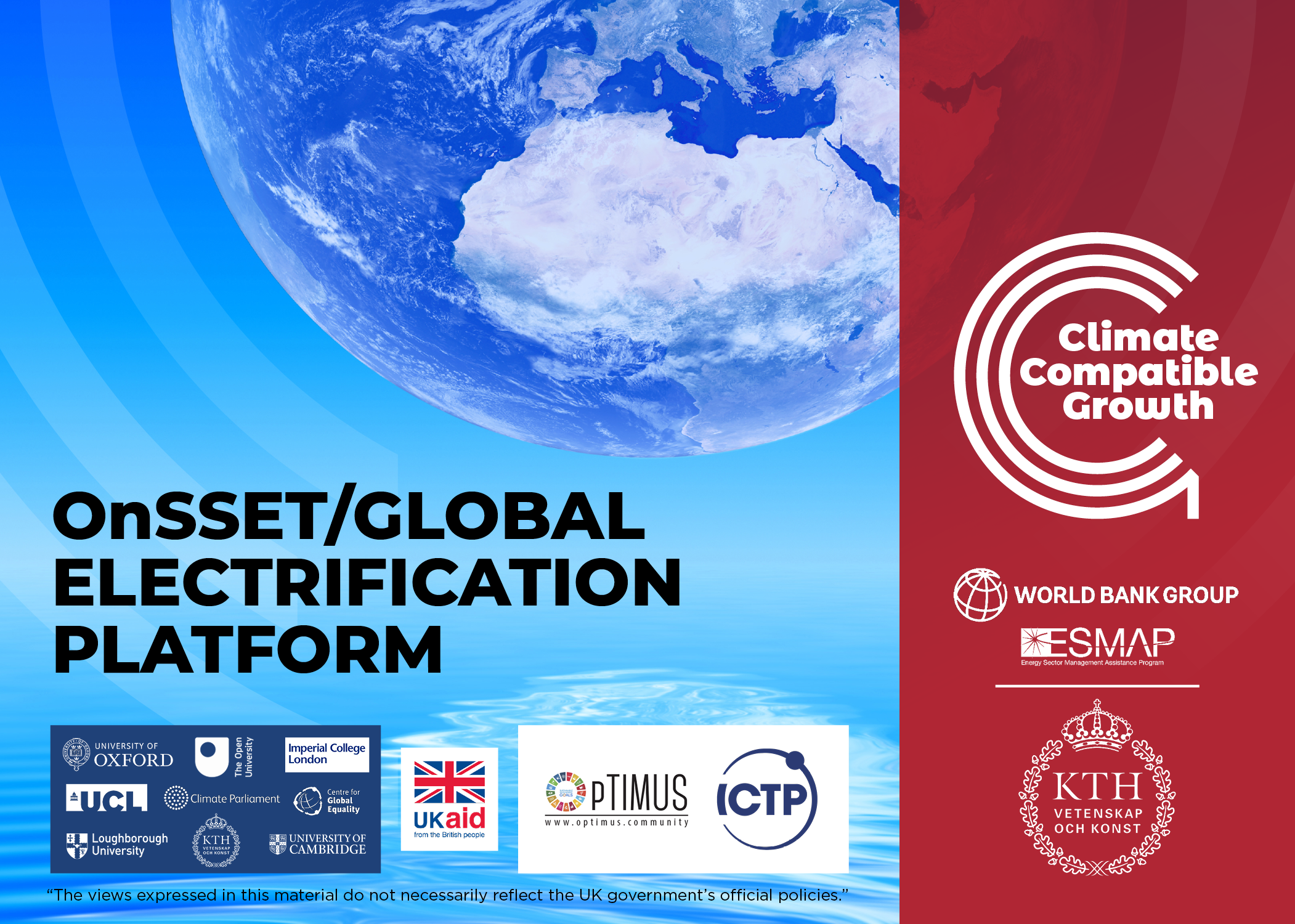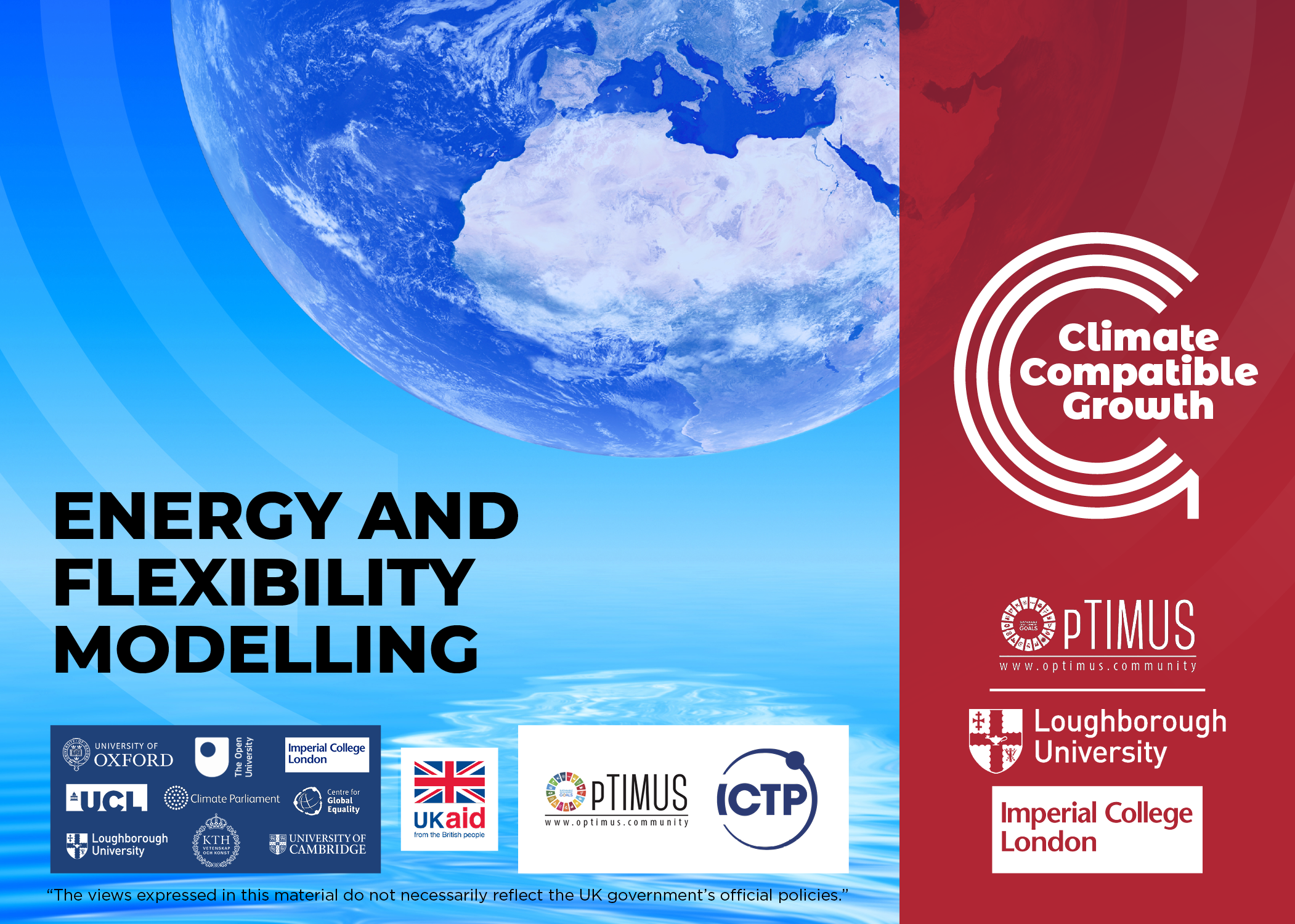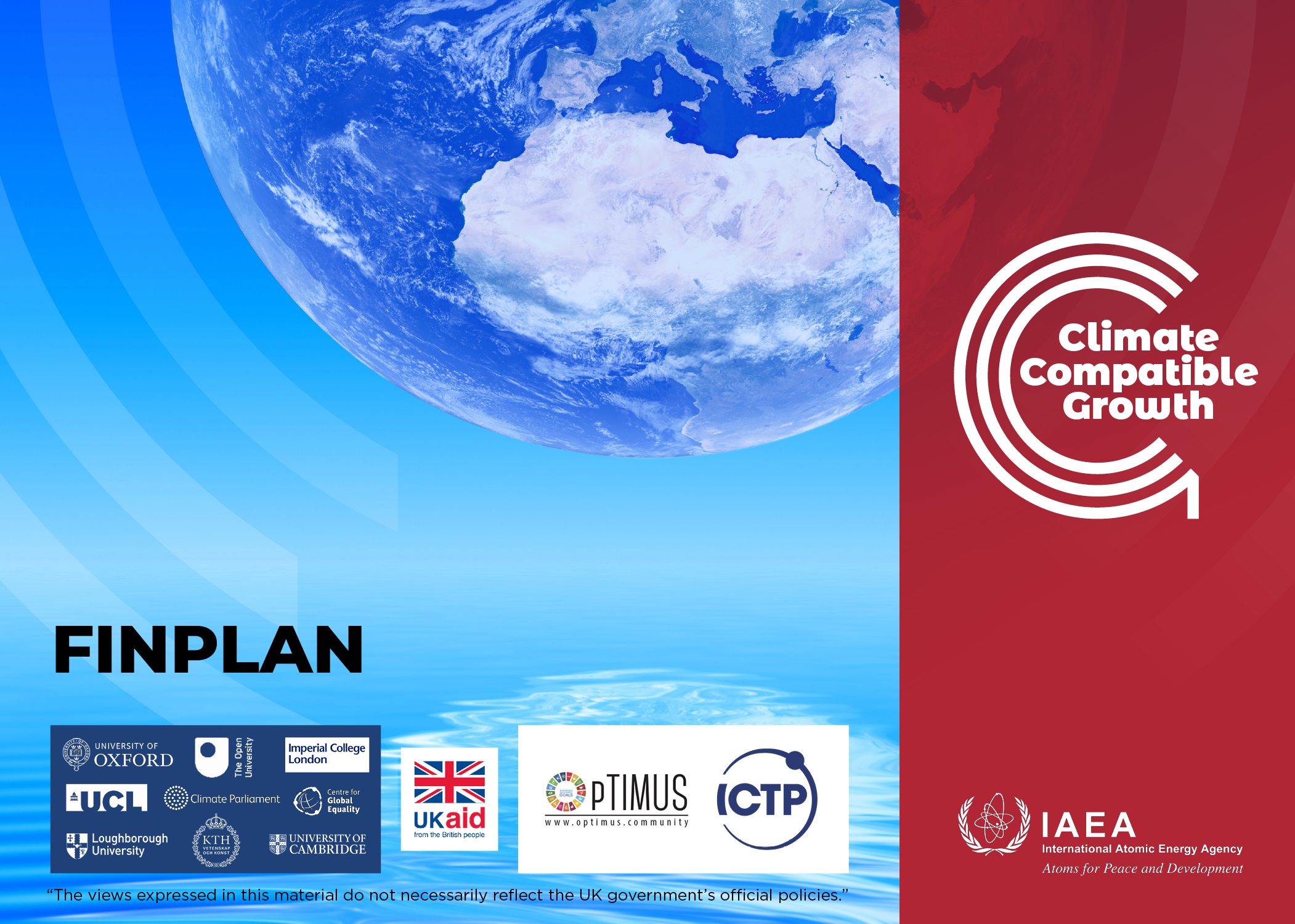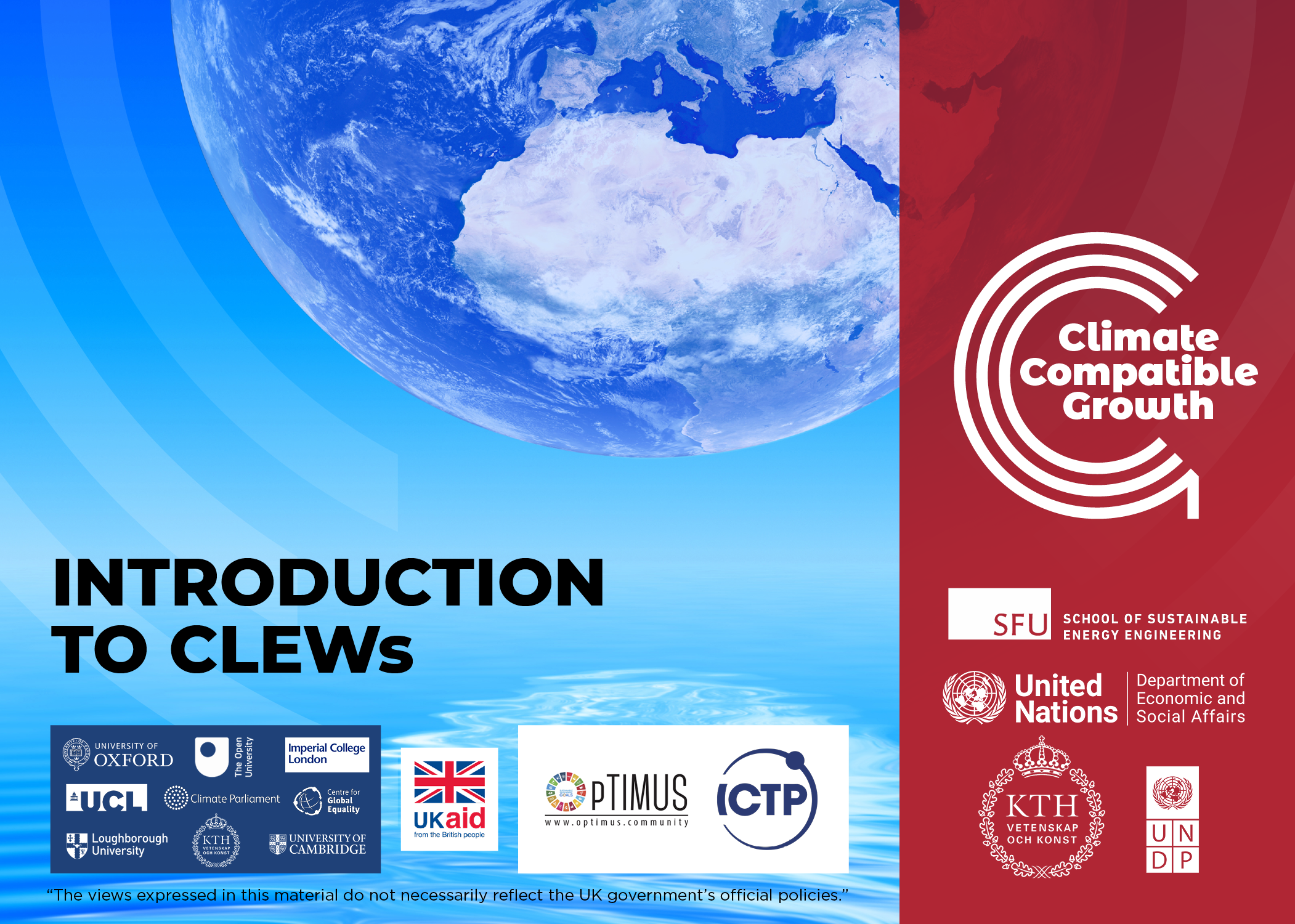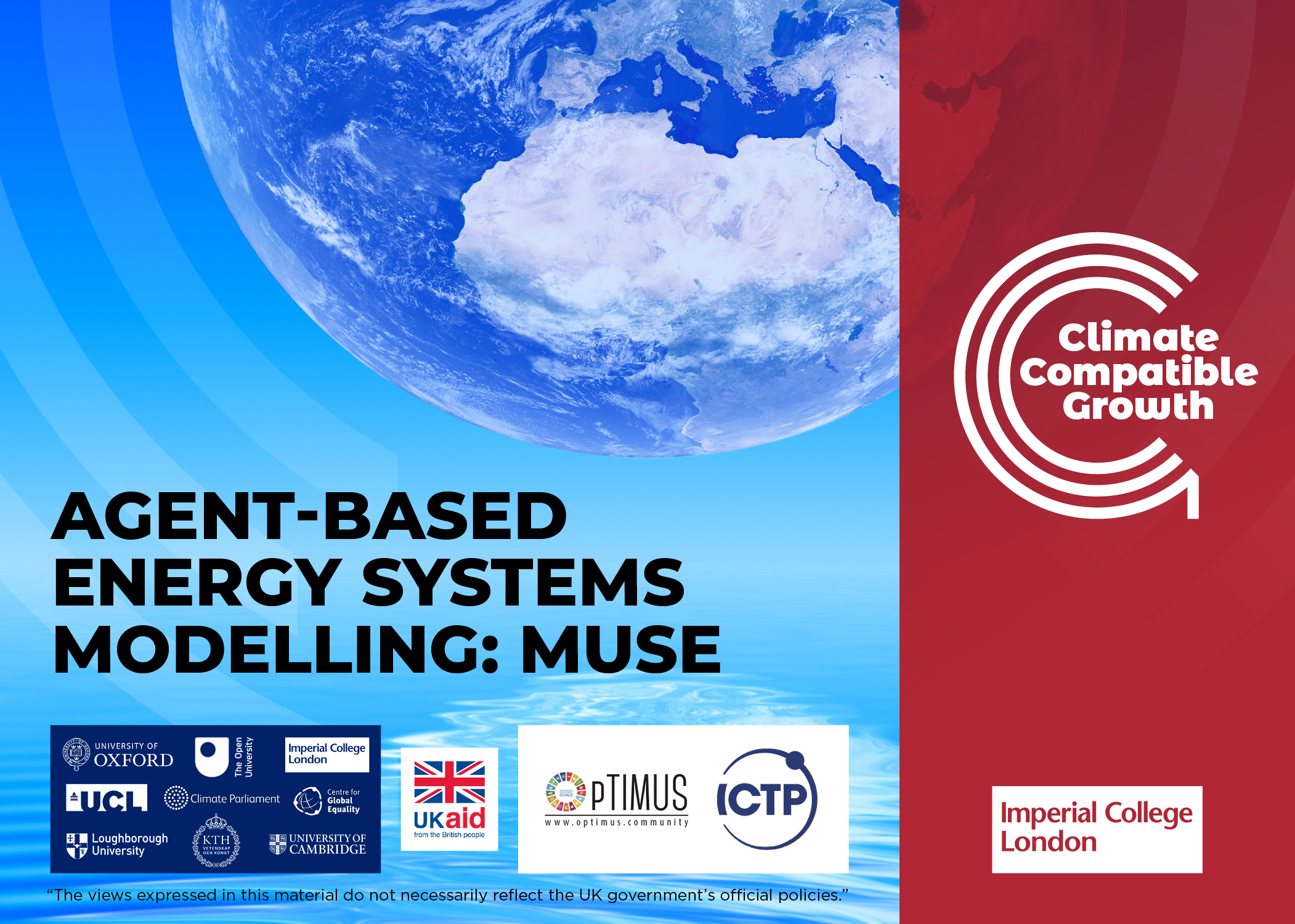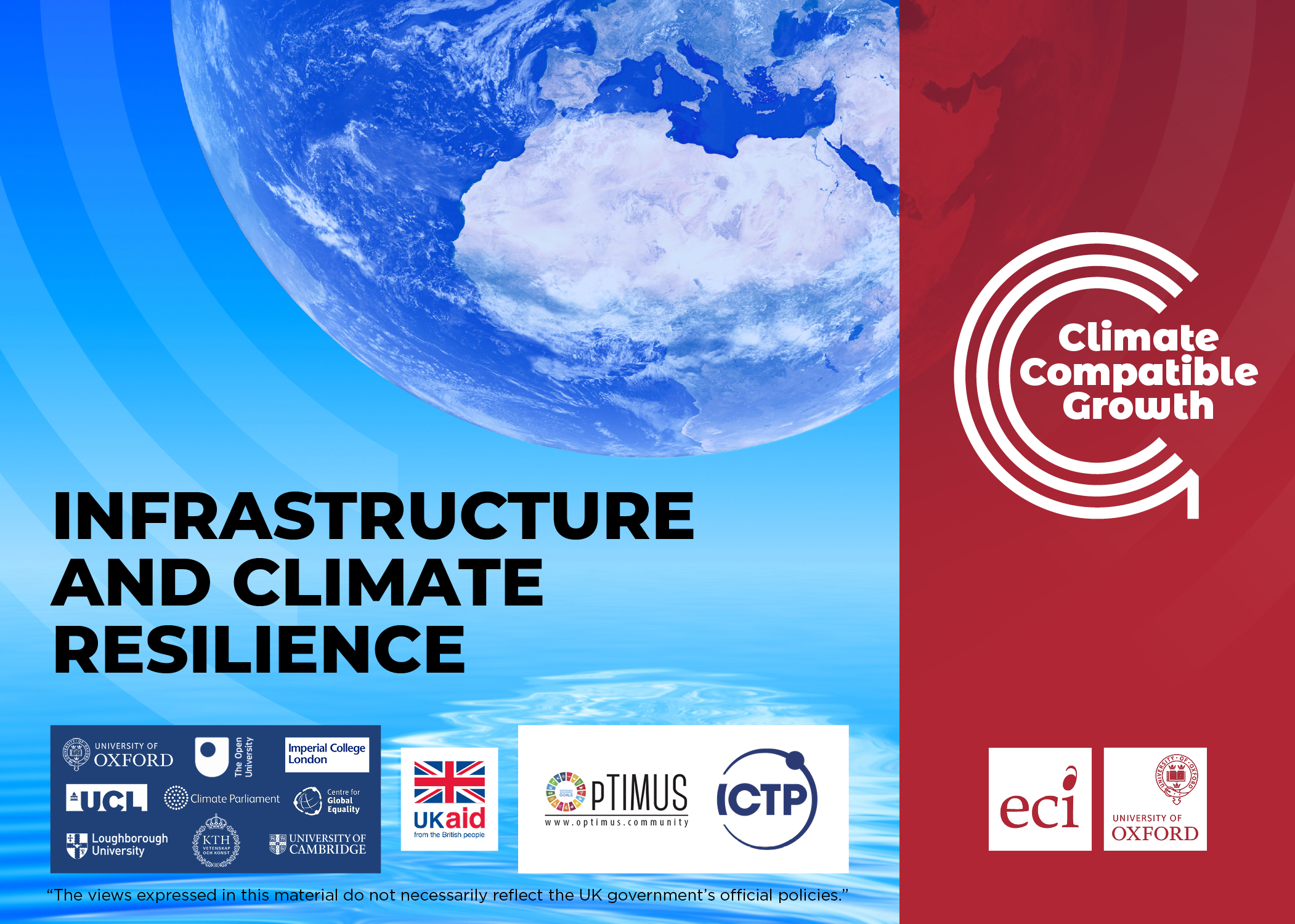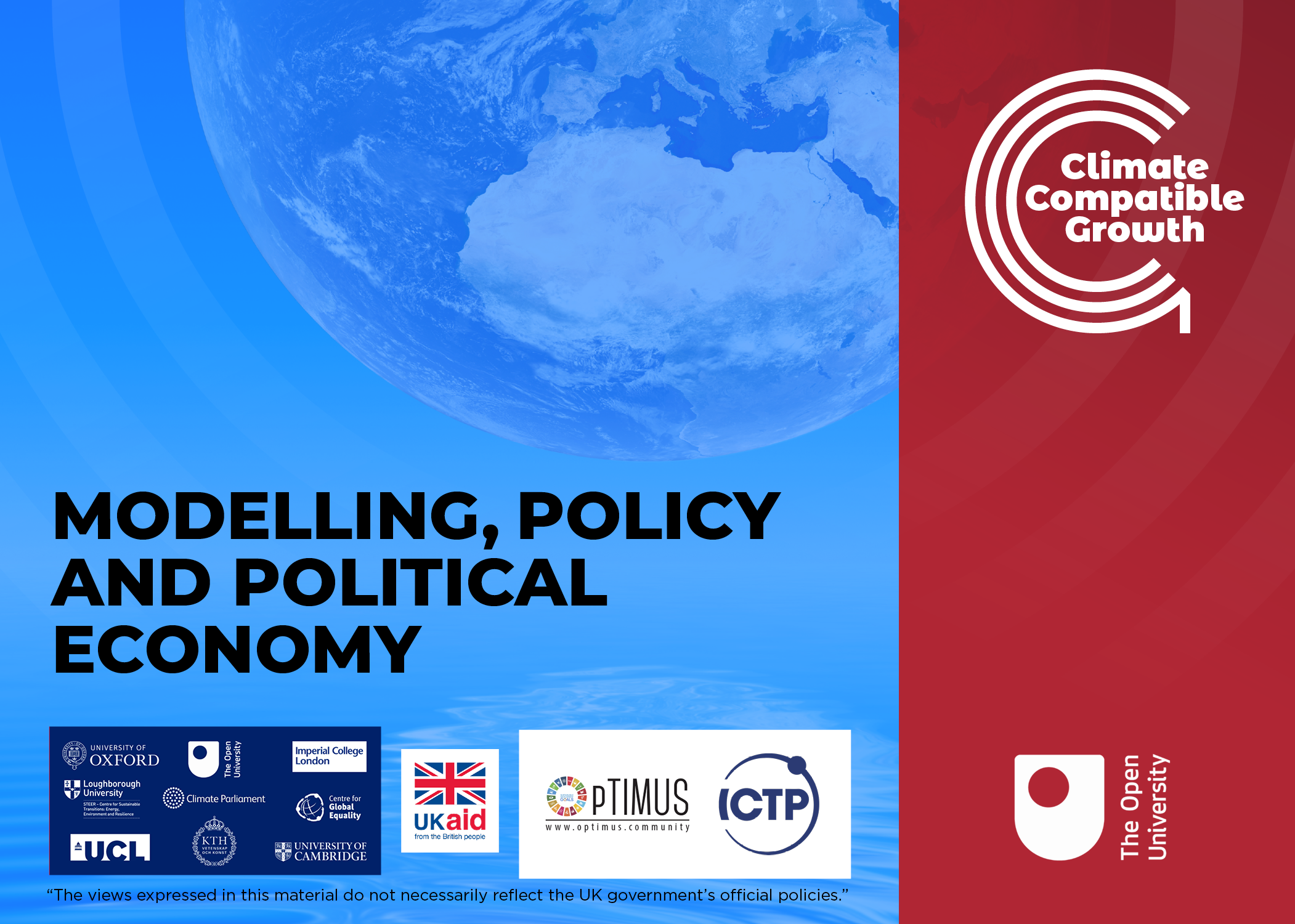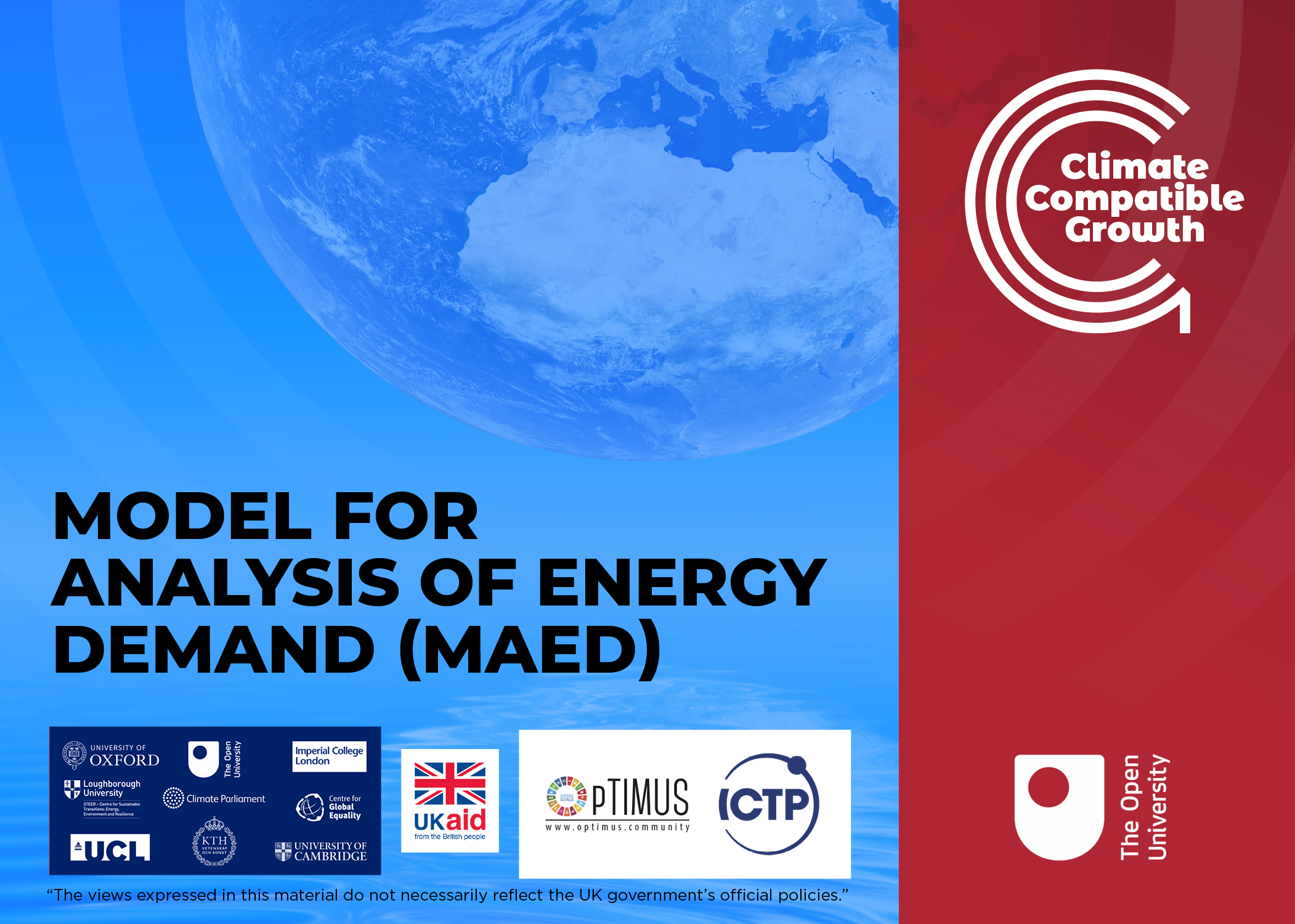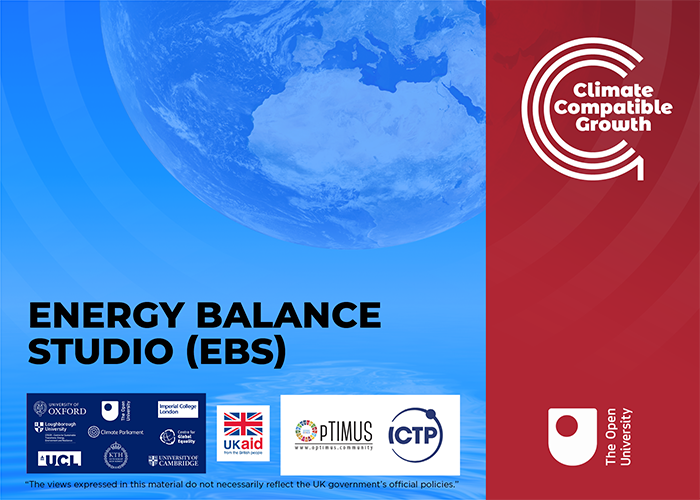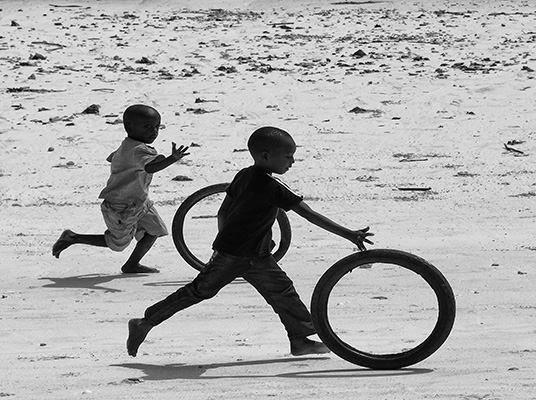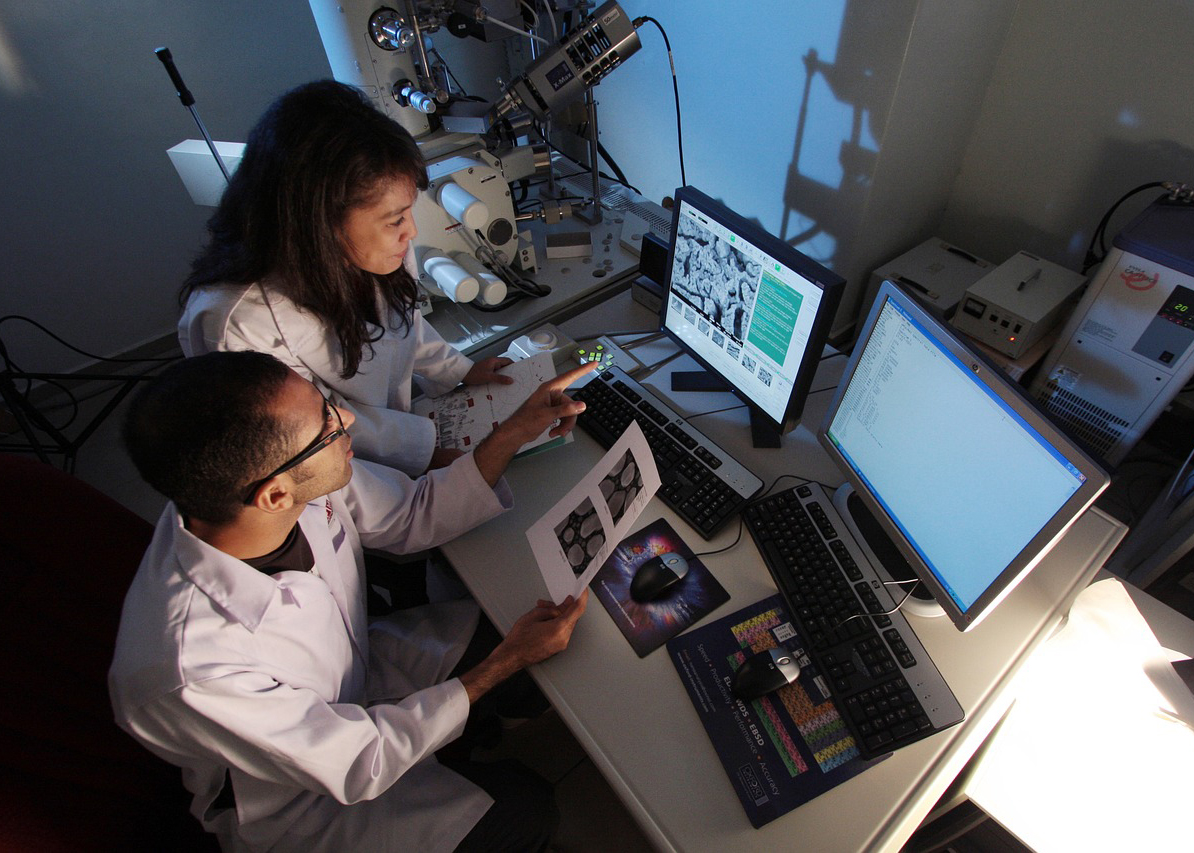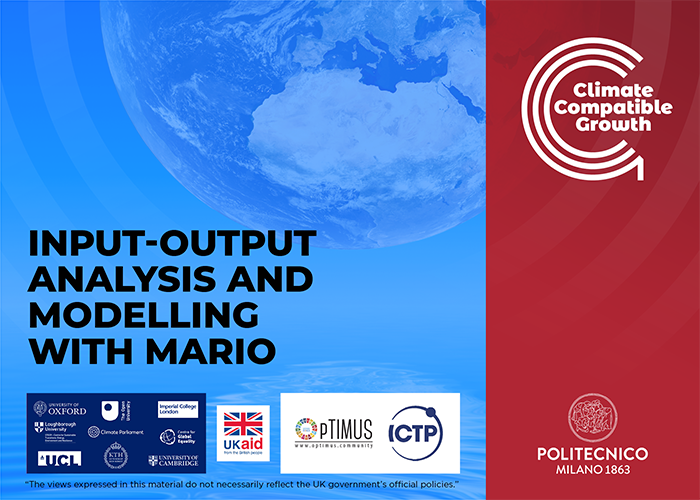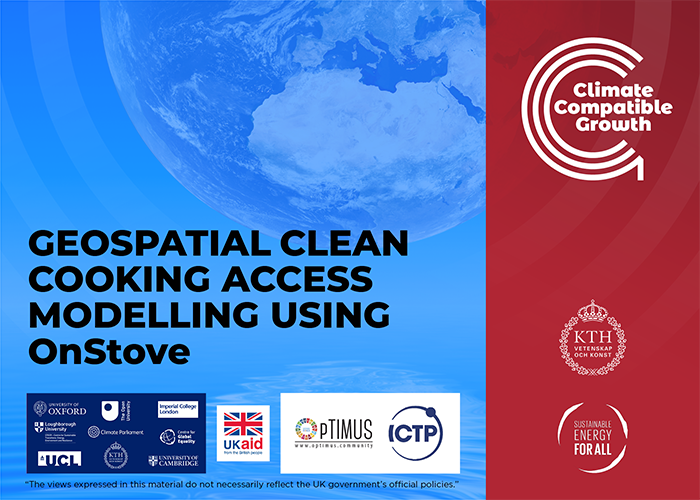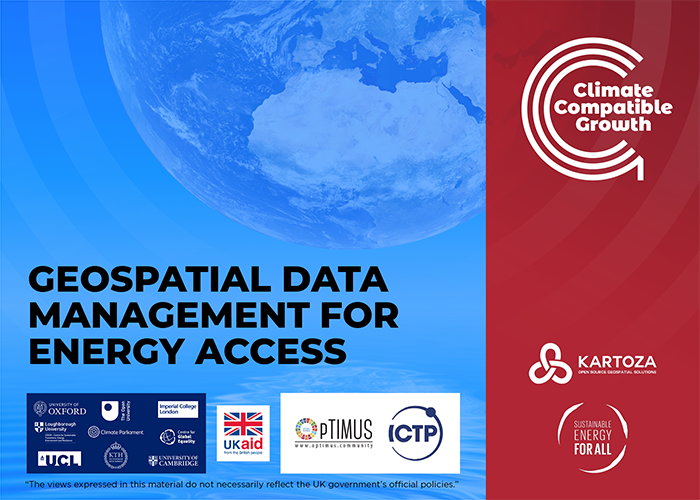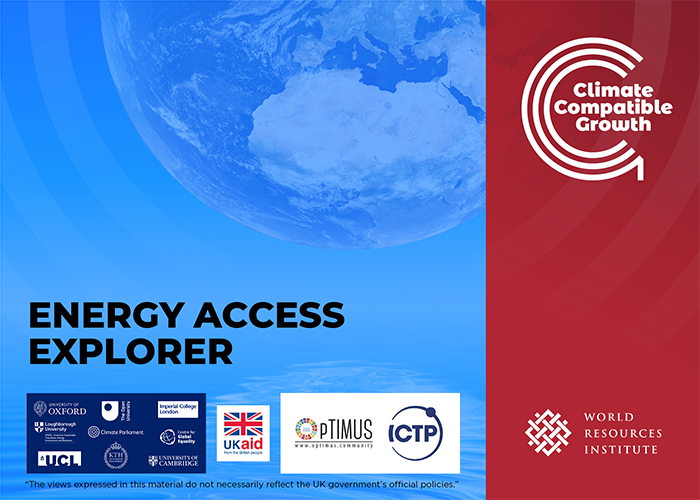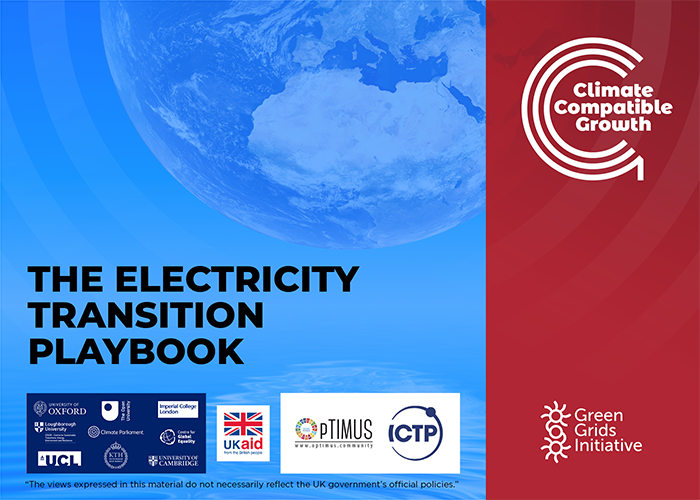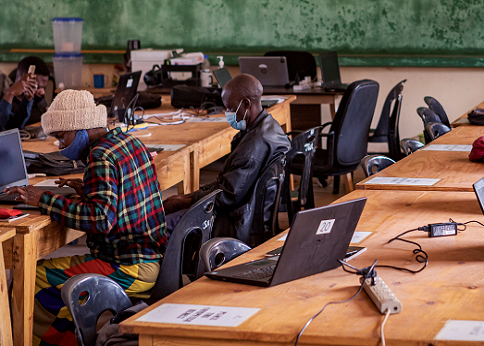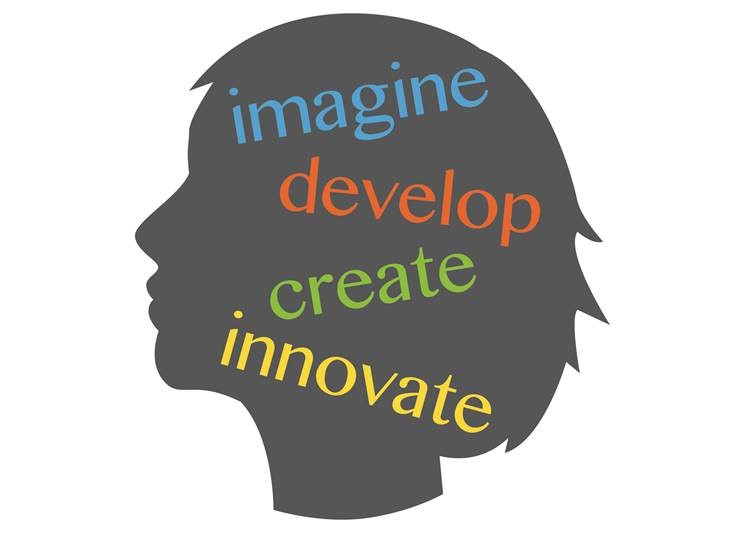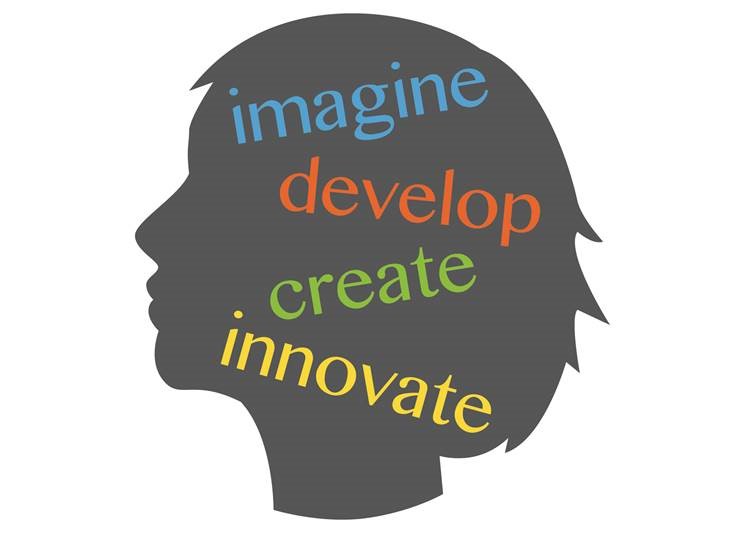-
-
Introduction to adolescent mental health
This course provides an introduction to adolescent mental health. The course is designed to encourage a greater understanding of mental health issues as well as to explore the variety of strategies that can be employed to support young people.
Course
24 hrs
-
-
OnSSET/The Global Electrification Platform
In this course, participants will learn about geospatial energy modelling in the tools Open Source Spatial Electrification Tool (OnSSET) and World Bank’s Global Electrification Platform.
Course
29 hrs
-
Energy and Flexibility Modelling: OSeMOSYS & FlexTool (Windows)
(WINDOWS version) Participants will learn to use energy modelling tools to understand the investments needed to meet growing energy demands alongside environmental and energy security constraints, while assessing system flexibility to account for high renewables penetration.
Course
32 hrs
-
Energy and Flexibility Modelling: OSeMOSYS & FlexTool (MAC)
(MAC version) Participants will learn to use energy modelling tools to understand the investments needed to meet growing energy demands alongside environmental and energy security constraints, while assessing system flexibility to account for high renewables penetration.
Course
32 hrs
-
Agent-based energy systems modelling: MUSE
This course will help participants understand the types of investments that could be made to ensure a sustainable and secure energy system from a global or national perspective using an agent-based methodology.
Course
10 hrs
-
Infrastructure and Climate Resilience
This course is centred around the role that infrastructure systems play in enabling climate-compatible and sustainable development in an uncertain future, providing the latest science and tools in this field.
Course
20 hrs
-
Modelling, Policy and Political economy
This course will help participants understand the relationship between energy systems modelling and policymaking, and introduce the concept of political economy analysis.
Course
12 hrs
-
Energy Demand Projections with MAED (Model for Analysis of Energy Demand)
This course will teach participants how to use the International Atomic Energy Agency (IAEA) modelling tool called the Energy Balance Studio (EBS). Participants will learn the theory behind energy balances, and how to use the EBS tool to construct energy balances
Course
20 hrs
-
-
-
-
Exploring equality and equity in education
This course considers the complexity of social justice as applied to education and reflects on the different purposes of, and value ascribed to, education in different countries and cultures. It discusses different conceptions of 'justice' and the distinction between equity and equality.
Course
10 hrs
-
-
-
Energy and Flexibility Modelling: OSeMOSYS & FlexTool (Windows)
(WINDOWS version) Participants will learn to use energy modelling tools to understand the investments needed to meet growing energy demands alongside environmental and energy security constraints, while assessing system flexibility to account for high renewables penetration.
Course
32 hrs
-
Energy and Flexibility Modelling: OSeMOSYS & FlexTool (MAC)
(MAC version) Participants will learn to use energy modelling tools to understand the investments needed to meet growing energy demands alongside environmental and energy security constraints, while assessing system flexibility to account for high renewables penetration.
Course
32 hrs
-
Energy Demand Projections with MAED (Model for Analysis of Energy Demand)
This course will teach participants how to use the International Atomic Energy Agency (IAEA) modelling tool called the Energy Balance Studio (EBS). Participants will learn the theory behind energy balances, and how to use the EBS tool to construct energy balances.
Course
20 hrs
-
Input-Output analysis and modelling with MARIO
The main goal of the course is to introduce you to the fundamentals of quantitative impact assessment methods and models. These quantitative models are specifically designed to assess the prospective environmental and economic impacts resulting from the application of technological or policy interventions at meso and macro-scale, comprehensively including supply-chain effects in a Life Cycle perspective.
Course
40 hrs
-
Geospatial clean cooking access modelling using OnStove
In this course you will be introduced to OnStove, an open-source spatial clean cooking tool identifying the best cooking solutions across any given area based on their costs and benefits. The track will take you from start to finish, from creating your own spatial repository to modifying your spatial data, calculating the net-benefits of different cooking solutions and lastly visualizing and presenting your results.
Course
32 hrs
-
-
-
Primary languages eTwinning platform 2023
This platform connects teachers participating in the Primary languages eTwinning initiative set up by the Open University in collaboration with Frogston Primary School in Edinburgh. Teachers based in Scotland and in Wales are participating in this project.
Material
10 hrs
-
-
-
Student Entrepreneurship Competition 2021
Welcome to the 2021 Student Entrepreneurship Competition. The competition will help students and recent graduates take their business ideas forward by securing cash prizes to invest in their ventures.
Competition
1 hr
-
Student Entrepreneurship Competition 2020
Welcome to the 2020 Student Entrepreneurship Competition. The competition will help students and recent graduates take their business ideas forward by securing cash prizes to invest in their ventures.
Competition
1 hr
-
Student Entrepreneurship Competition 2019
Welcome to the 2019 Entrepreneurship Competition. The competition will help students and recent graduates take their business ideas forward by securing cash prizes to invest in their ventures.
Competition
1 hr
-
-
Building Sustainable and Resilient Communities: Actions for Natural Hazard Scientists
Open version: This course explores how natural hazard scientists can strengthen their contribution to disaster risk reduction activities.
Course
10 hrs
-
My OpenLearn Create Profile
- Personalise your OpenLearn profile
- Save Your favourite content
- Get recognition for your learning
Already Registered?



